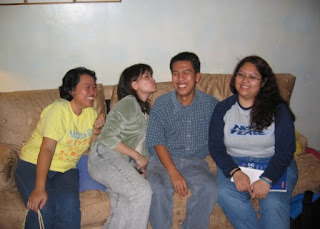A Tale of Two Executions
A few hours ago, the BBC and CNN broke the news that Saddam Hussein has been executed, and I have to admit I feel rather indifferent about it. Sure, he had committed countless crimes against his people and deserved to be punished, but I couldn’t help but think that he and Rizal now share the same death date. Plus, both were executed under the watch of an occupying foreign power. Beyond that, these two executions—what a study of contrasting circumstances!
Saddam’s execution may have more currency, but the lasting impact of Rizal’s execution has more relevance, at least to me. Imagine, a physician punished for his prose! I believe there is no other national hero in the world who became one, not because he wielded a weapon, but because he held a quill. Imagine, a pair of political novels, written according to 19th-century literary conventions, inspiring a revolution, not to mention become required reading for high school students many years later. Imagine the royalties! If Francisco, Rizal’s stillborn son by Josephine Bracken, had lived and matured and had his own family, he and his descendants would have been very rich. Isn’t it any wonder why there are some local creative writers who, consciously or not, have Rizal as their model? His impact on art, culture, history and literature is staggering.
But there will never be another Rizal, and we all know it. He existed in a different time, lived under different conditions. There could never be another Rizal in our or any other time, contrary to what that misguided guy who wrote Noli Me Tangere 2 might think. Certain eras breed, demand certain kinds of writers. Be that as it may, I personally wouldn’t mind if people would give creative writers today, at the very least, the same level of respect that they accord toward Rizal.
(Funny Fact: Rizal posthumously won the Best Story prize from the Filipino Academy of Movie Arts and Sciences (FAMAS) in the early 1960s for Gerardo de Leon’s film adaptations of Noli Me Tangere and El Filibusterismo. Panalo talaga. Literally.)



